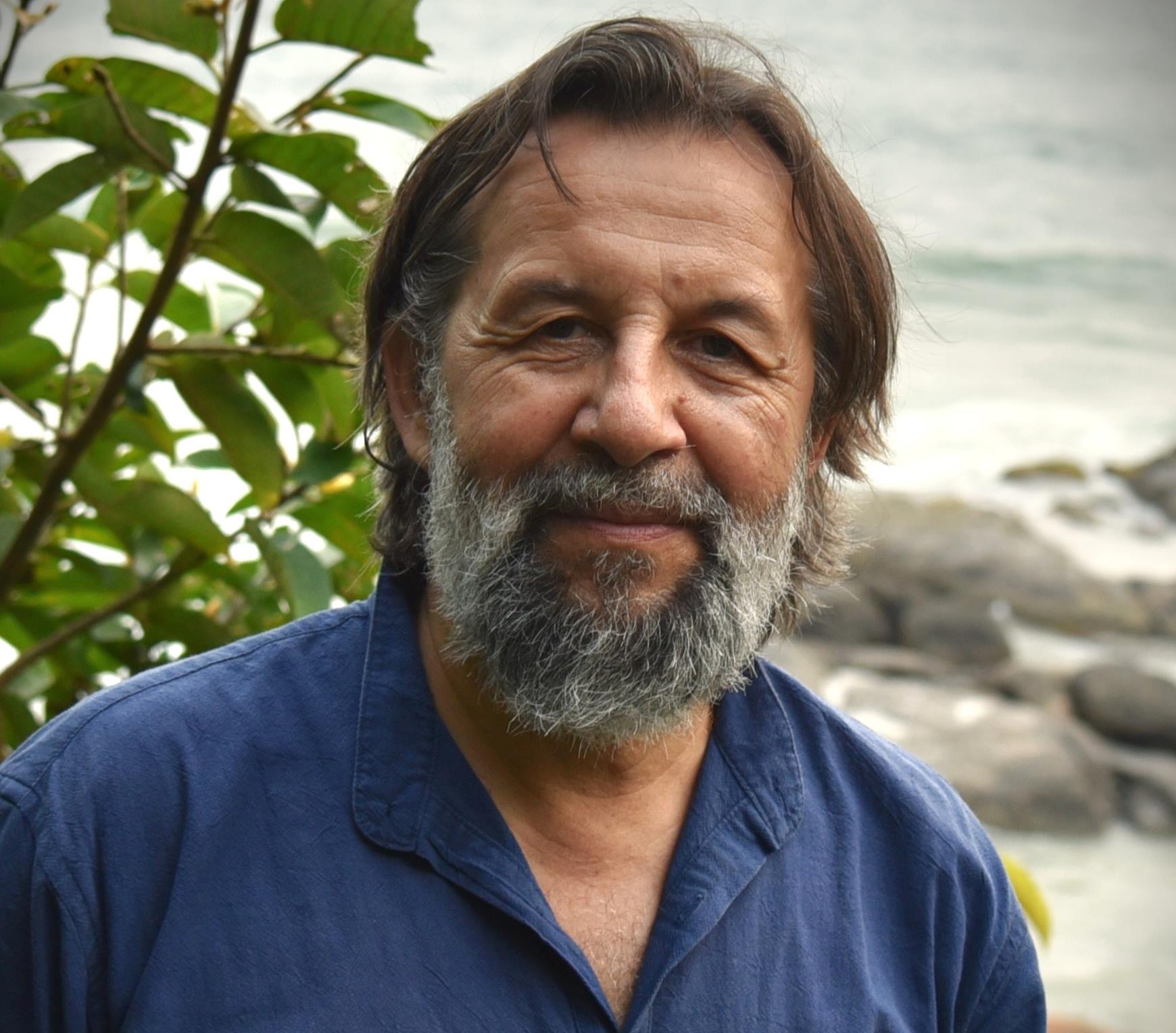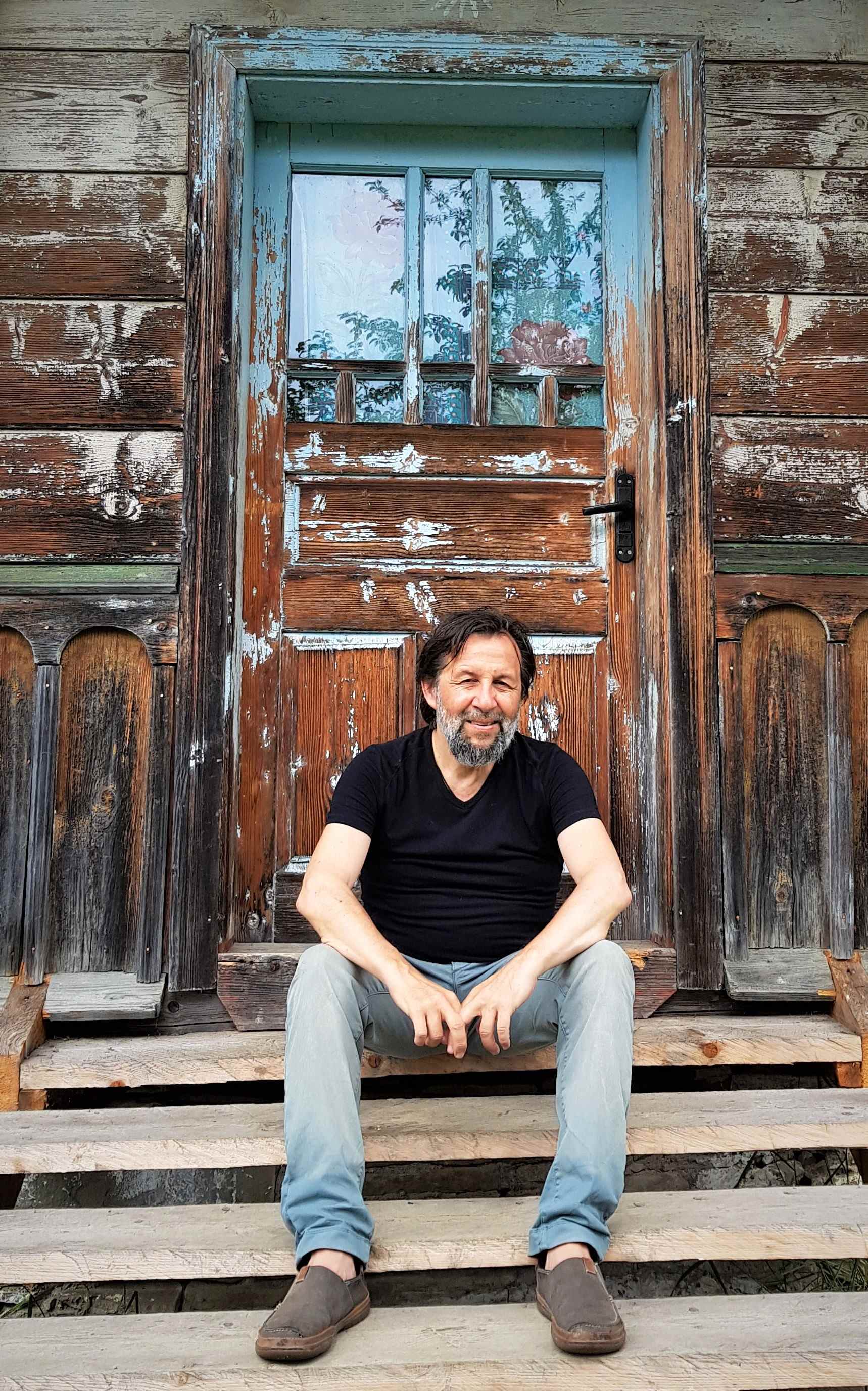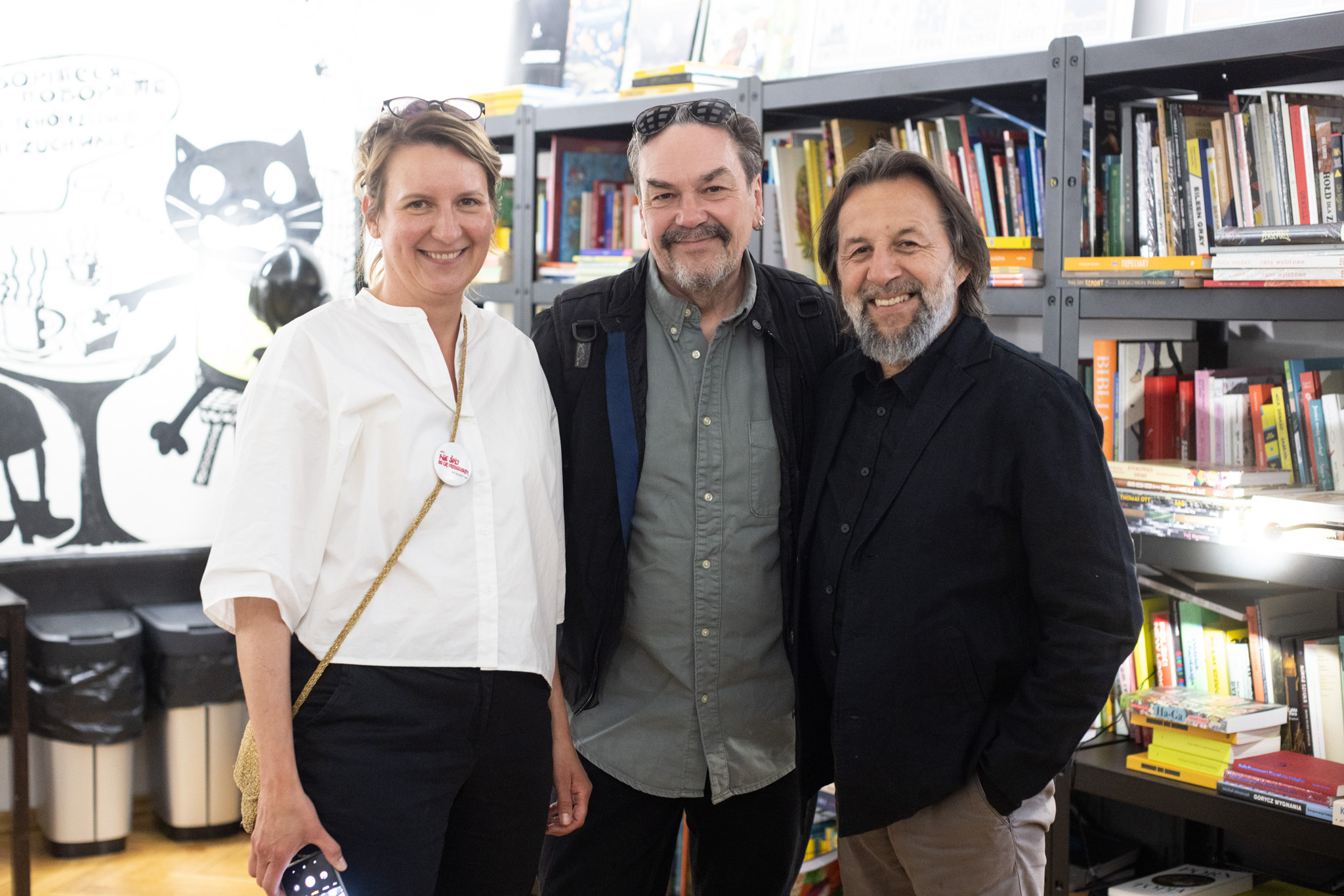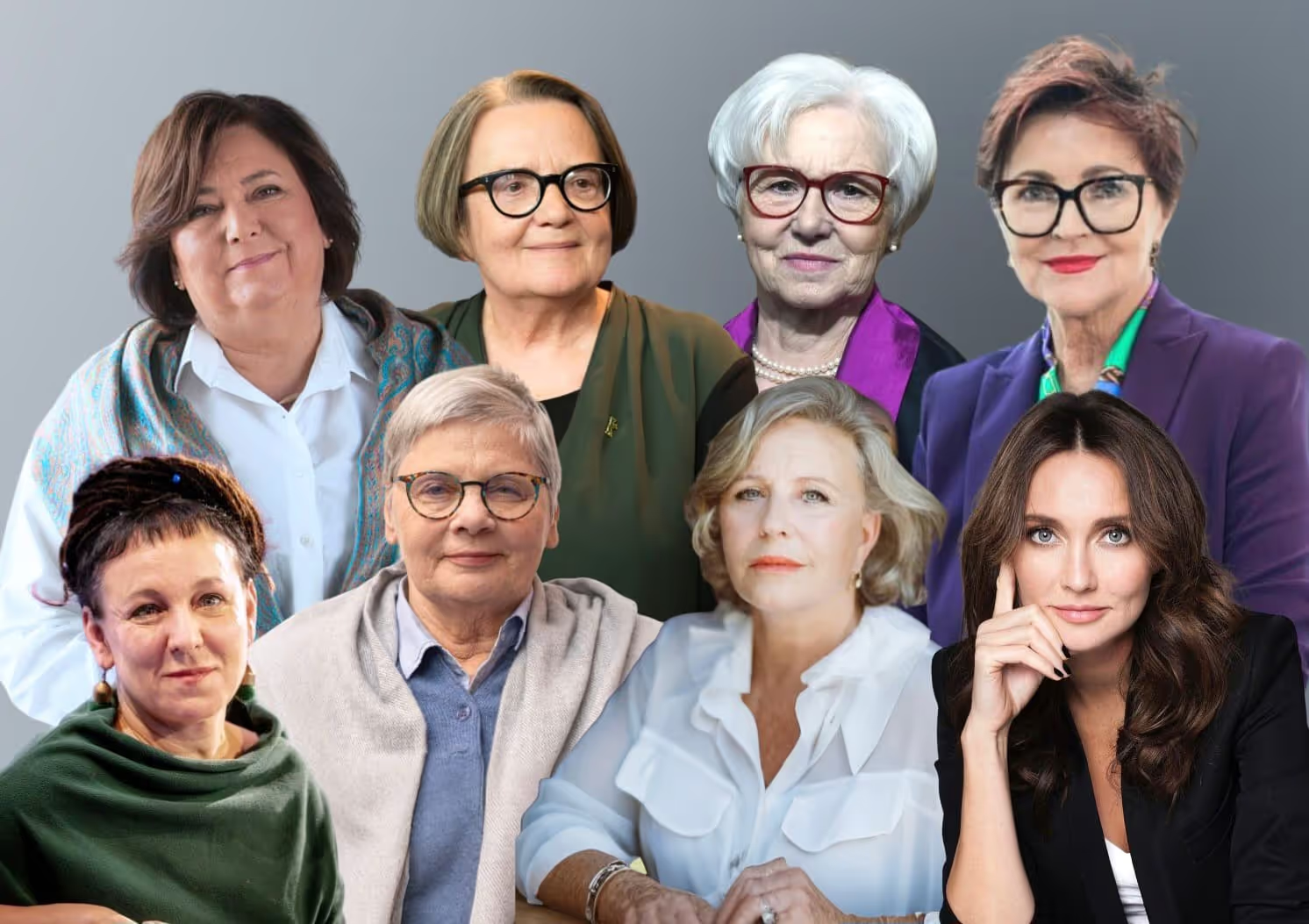Support Sestry
Even a small contribution to real journalism helps strengthen democracy. Join us, and together we will tell the world the inspiring stories of people fighting for freedom!
«In Berlin, you pay an agent up to 5 thousand euros just for the right to rent a flat»
- On the morning of 24 February, my sister called me: «The war has begun». I hung up, looked out the window, and saw a four-lane traffic jam, recalls Marharyta Korovina, organiser of public events and a Ukrainian culture festival in Berlin. - At that time, I lived with my mother. My sister said they would take me, but there was nowhere to take my mother. Understanding that I could not leave my mother alone, I refused to leave.
There were fewer and fewer people in our district. Within days, the neighbourhood was deserted, with only the elderly left. And I started helping them. I used my savings to buy them food. Getting groceries at that time was quite a challenge. My task was to find bread for my mother, my neighbours, and myself. At «Silpo» (Ukrainian supermarket chain), they gave out one loaf per person. So I searched all over our district. And I believed the war would soon end...

I also created a TikTok account where talked to Russians through chat roulette. I asked them why they had attacked, what they wanted from Ukraine. They gave all kinds of absurd answers, often aggressive. It was my social experiment to counter the «not all Russians are like that» narrative - I posted conversations with Russians in the public domain. In the first months of the full-scale invasion, my account went viral. Some people used my materials to edit videos for their Telegram channels. Some videos gained a million views in one day. Then I got banned.
By summer 2022, I realised my savings were running out, and I had no income. The office where I had worked before the war had closed. A quick decision was necessary.
Since the situation in Kyiv was already more or less calm, I made the difficult decision to go to Barcelona, as our fund's hub was there. Besides, my sister already lived in Spain. I went there hoping to be among ambitious, motivated and active people but found something entirely different: in the Spanish office, like in an ordinary accounting office, everyone worked from 9 to 3 and then hurried home. I could not focus. I went to Berlin for a couple of days to volunteer... and stayed.
I had no friends or relatives in Berlin, but I was captivated by the enormous Ukrainian creative community here. At every corner, Ukrainian flags: on official buildings, universities, town halls, and even just on the balconies of residential houses. I was amazed by the scale of support for Ukraine.
Moving to Germany can be compared to a person learning to walk and talk again after an injury. You seem like an adult, but your opportunities are like those of a two-year-old child. For a long time, I felt like a non-functional part of society. But now, it seems I have reached the acceptance stage.

A significant problem in Berlin is housing. I was lucky not to live in «Tegel». This is a non-operational airport where a camp for refugees was set up using tents, and nearly everyone arriving from Ukraine passed through it. Using the programme for Ukrainian refugees, I lived for the first two months with a young German family. Simultaneously, I searched for a flat.
Finding accommodation in overcrowded Berlin is a task with a star, so social networking works best here (word of mouth). Ukrainians created Telegram channels and found local resources that worked better than the official housing search. However, estate agents are also used here, and that is another corrupt scheme. Agents often ask for 1-5 thousand euros as a «provision» - a one-time cash payment directly to the agent, not included in the contract. Essentially, a cash bribe for the right to rent a flat. Perhaps agents artificially create such demand that people are ready to pay any money just to get a housing contract. An open flat viewing in Berlin is a queue of a hundred people. You pay the agent to be prioritised. Personally, I found a flat by talking to people because I kept asking everyone about housing.
Germany is an entirely different world. I thought there would be technological progress here. Instead, everything is slow, unclear and bureaucratic. This was a shock to me. I know that even most Germans are dissatisfied with this.
«I can only do things related to Ukraine»
- Was it difficult to adapt to Germany?
- In Berlin, I quickly got to know interesting people. We began meeting and creating projects. I felt there were resources here through which I could do much good for Ukraine. Because I can not do anything unrelated to volunteering or Ukraine. When you constantly think about the war at home, other things barely concern you.
Imagine, here in Berlin, I have seen people from Mariupol who still carry keys to their flats in Ukraine, even though those no longer exist
Regarding the adaptation of Ukrainians in Berlin, I have a basis for comparison - with Barcelona, Paris and Lisbon. Kyiv had a special relationship with Berlin even before the war, so, unsurprisingly, many cultural figures, artists and activists relocated here. Today, Berlin feels like an extension of the Golden Gate and Podil. Events here easily gather Ukrainian music, food, and goods. We even received a proposal to hold «Kurazh Bazar» in Berlin, but we organised something in a similar format called «Motanka».

Ukrainians in Berlin are what keeps me here: active people who tirelessly keep Ukraine in the informational spotlight, fight against disinformation, talk about Ukrainian culture and history, shout about the repressions our nation suffered under the Soviets, and open the eyes of the «concerned» and not-so-concerned Europeans to the proximity of the war and Russia’s colonial, imperialist, and terrorist nature.
Moreover, many Ukrainians in Germany are already integrated and well-acquainted with local sentiments. Most such individuals now occupy leadership positions in Ukrainian organisations, cultural institutions, embassies, etc.
Over the past three years in Berlin, several Ukrainian restaurants, beauty salons, and a gallery have opened, but the largest focus is on public organisations. People did not bring their businesses here since Germany is not the most favourable place for entrepreneurs. Instead, they brought their social and charitable initiatives. Everything here revolves around culture, politics and information.
In 2023, together with German, Georgian and Ukrainian like-minded individuals, we registered a public organisation here called Mizelium. By law, Ukrainians can not establish their own organisation in Germany. Its composition must include Germans. What do we do? Initially, we collected humanitarian aid and sent it to Ukraine. Then we shifted to organising festivals, concerts and workshops to introduce Europeans to Ukrainian culture and make it trendy.
I am learning German and will soon take the B2 level exam. I plan to obtain grant funds for our cultural projects.
Our main idea is to show the colossal difference between Ukrainian and Russian cultures. Many Germans do not distinguish between them
A German acquaintance once said he did not even know that beyond Poland there was another country. He thought it was immediately Russia

«We created the largest Ukrainian culture festival in Europe - for 10 thousand people»
- Tell us about the projects in Berlin you participated in. Why is this important to you?
- In 2023, we organised the largest Ukrainian culture festival in Europe, «Motanka». A year earlier, in 2022, we launched its pilot version. We chose an underground location, little-known even to Berliners - a place where hippies live: a river, yurts, a bar made of planks, a small stage. We arranged an exhibition in a boathouse garage.
A year later, we organised a large-scale festival.
Six floors of various formats: music, cinema, exhibitions, a pop-up market of Ukrainian brands, food, discussions about culture and politics. Over three days, about 10 thousand people attended our festival
We created this event without grant funding. We offered collaboration to Ukrainians from the cultural sphere in Berlin, and all of them agreed. We did not expect such a scale but were happy. The location was provided to us for free. We enlisted the help of partners and sponsors who provided free services totalling approximately 300,000 euros.
I would call Berlin a decision-making hub. Many politically significant events happen here.
Now, in 2024, the intensity of Ukrainian informational events is still quite high. However, greater involvement is desirable because, for example, there are fewer and fewer people at protests and rallies.
There is an event called «Café «Kyiv» with a political focus. Last time, Ursula von der Leyen participated, and Vitali Klitschko was present. Our ambassadors also joined. Panel discussions were held, the documentary «20 Days in Mariupol» was shown, and there was an exhibition titled «Yolka», which had been with us on Maidan in 2014 - there was a queue at the entrance. The first event was held at a place called «Moscow Restaurant». On the day of the event, this name was symbolically covered with a banner reading «Café Kyiv». Politicians attend this event to emphasise their pro-Ukrainian image.
Our «Motanka» was created to engage people who unknowingly discovered Ukraine. Through collaborations with local artists, brands, and musicians, we managed to unite an audience and subtly involve thousands of Berliners, showing them the creative side of Ukraine without alienating them with the topic of war.

«In the state I have been in for almost three years, Frank Wilde has been in nearly his entire life»
- How do Germans now view everything Ukrainian?
- Until 1989, Berlin was divided by a wall, and the eastern part of the city still significantly differs from the western part. Even election results reflect this. Here, people romanticise the Soviet Union and Russian politics. Even the generation that did not experience life in the USSR somehow feels nostalgic about it. Therefore, their attitude towards everything Ukrainian, naturally, is not positive.
Russia, thanks to friendly relations with Merkel, deeply ingrained itself in the minds of Germans, and people «outside politics» miss it because kebabs used to cost 3,50 euros under her rule, and now they cost 8. Gas was also cheaper.
There are Germans who still feel «backed into a corner» because of World War II. This has led to the quiet emergence of a second wave of Nazism, which is now breaking out of the underground. For instance, the popularity of the AfD party is growing. This pro-Russian party plays on Germans' emotions (the main ideological theses of the AfD are directed against European integration and immigration - Edit.)
In general, discrimination based on nationality is prohibited by law in Germany (this is stated in the constitution). Therefore, no German would do this openly or transparently. I have not noticed such conflicts here.
However, there are also many conscientious Germans who are interested in Ukraine, attend Ukrainian demonstrations, speak at them, and provide support.

- You have been working with Frank Wilde, a designer and a great friend of Ukraine, for over two years. What is the most important aspect of this collaboration for you?
- I learned about Frank while sitting in a bomb shelter in Kyiv, before I left. When I arrived in Berlin, I met him at one of the events dedicated to Ukraine. He literally attends all such events. When we organised the first «Motanka», I suggested he hold his own auction. He agreed and donated part of the proceeds to support Ukraine.
I offered him my help with PR and managing his communications. Now, I am his volunteer manager.
Frank played a key role in my stay in Berlin. He is a very wise person. In the state I have been in for almost three years, he has been in nearly his entire life. He is always fighting. In collaborating with Frank, I am motivated by gratitude. I want to repay him on behalf of all Ukrainians for what he does for us.

«I dream of reviving my grandmother's village»
- What helps you hold on? What do you dream about?
- That is a good question. I still live with my pre-war dreams. I have a country house in the Sumy region, which I have always loved. My grandmother used to live there, and it was always cosy and cheerful at her place. When she passed away, we bought a house next door. Growing up, I saw how the village changed. It began to decline because many people left. Even then, I dreamed of reviving this village.
During the Covid lockdown, I went there for a month and saw that people had nothing to do or entertain themselves with. I started thinking about how to change this.
I arranged with the local cultural centre to use a space to create a place for young people. I also planned to organise a rural retreat for city dwellers - giving rides in a cart, teaching people to herd geese and cows, and holding a rural rave party. Additionally, I wanted to find grandmothers who knit, embroider, or create other interesting handmade items and help them sell their crafts. Handmade work is very popular now. I even created a social media account for this village. Then the war started. But when I feel sad or lose hope, I open my laptop and write down my ideas about the village. This is now my way of recovering.

Photos: private archive and the heroine's Instagram

A journalist, writer, videographer, content creator and podcast author. She has participated in social projects aimed at raising awareness about domestic violence. She has led her own social initiatives, ranging from entertainment projects to a documentary film about an inclusive theatre, which she independently authored and edited. At «Hromadske Radio», she created podcasts, photo reports and video stories. Since the full-scale invasion of Ukraine, she has begun collaborating with international publications, attending conferences and meetings across Europe to share insights about the war in Ukraine and journalism during these challenging times.







